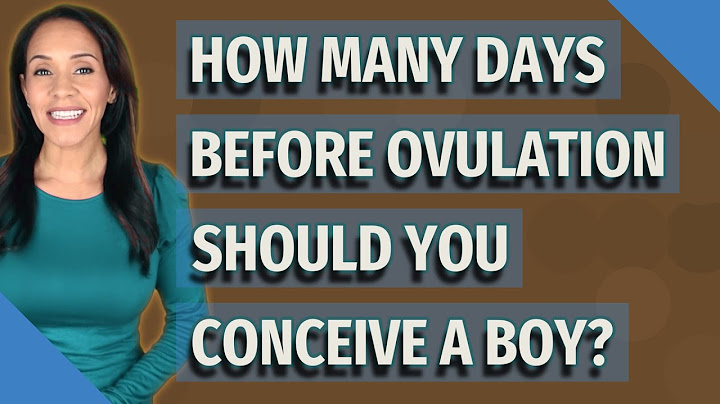Published on Apr 28, 2017 and last reviewed on Jul 04, 2022 - 3 min read Show
 To understand the safe and unsafe periods to have sex, you first need to understand your menstrual cycle. What Is Menstrual Cycle?The changes in the female reproductive organ to get it ready for pregnancy every month is called the menstrual cycle. These changes result from the increase and decrease in the levels of female hormones estrogen and progesterone in the body. Every month, an egg develops and is released from the ovaries and the uterine lining forms in preparation for the implantation of a fertilized egg. If implantation does not occur, the uterine lining is shed, and you get periods. What Are the Phases of the Menstrual Cycle?The four phases of the menstrual cycle are: Phase 1- Menstrual Phase:This phase usually lasts for 3 to 7 days. It is the phase where you get your menstrual periods. When fertilization does not occur in the previous cycle, the levels of estrogen and progesterone will drop. This results in the shedding of the uterine lining, as it is no longer required to support a pregnancy. The symptoms that you might experience are abdominal cramps, bloating, breast tenderness, mood swings, irritability, low back pain, and headaches. Phase 2 - Follicular Phase:This phase starts from the day you get your periods to the day you ovulate. So this phase also includes the menstrual phase. This phase lasts for approximately 16 days, but depending on the length of your cycle, it can be anywhere from 11 to 27 days. Here, the hypothalamus in the brain makes the pituitary gland release follicle-stimulating hormone (FSH), which in turn stimulates the ovaries to produce around 5 to 20 follicles. Follicles are small fluid-filled sacs that contain an immature egg each. One or sometimes two follicles mature, and the body resorbs the rest. The maturing follicle makes the estrogen levels rise, which thickens the uterine lining for the fertilized egg (embryo) to implant and grow. Phase 3 - Ovulation Phase:This is the only phase in the menstrual cycle where you can get pregnant if you have unprotected sexual intercourse. As the levels of estrogen increase, the pituitary gland releases luteinizing hormone (LH), which begins this phase. The mature egg in the ovaries is released (ovulation), and it travels through the fallopian tube to the uterus. Ovulation can be detected by symptoms like a rise in the basal body temperature and thick white vaginal discharge. The egg can be fertilized by a sperm only for about 12 to 24 hours after ovulation, after which the egg dissolves. But, sperm can live in the female body for up to 5 days. So you can still get pregnant if you have unprotected sex five days before you ovulate. Phase 4 - Luteal Phase:The follicles that remain in the ovaries after the egg is released get converted into the corpus luteum. Corpus luteum releases progesterone and little estrogen. If fertilization of the egg does not occur, corpus luteum resorbs, and the level of progesterone and estrogen will drop. This causes the lining of the uterus to shed, and you get your periods. If you are not pregnant in the luteal phase, you will experience premenstrual syndrome (PMS) symptoms like bloating, breast tenderness, mood swings, etc. What is a Safe Period?It is when supposedly a woman has the least chance of getting pregnant. Women go through monthly changes in their bodies in the name of the menstrual cycle. A monthly cycle has two components: Proliferating Phase: This is the period that begins soon after the menstrual bleeding starts. Secretory Phase: This is a constant period of 14 days, which you can count as 14 days before you get your periods. By no means, it provides complete protection against pregnancy since it has been seen that the intercourse itself may trigger untimely ovulation. You can easily use our safe day's calculator to find out the safe days in your cycle for this month. What is the Unsafe Period (Fertile Days)?A woman conceives if she copulates within the time of ovulation. Hence the time of ovulation is termed as the unsafe period to have sexual intercourse. How to Calculate the Time of Ovulation?
Trying to conceive? Use our fertility calculator to find out the most fertile days in your menstrual cycle. But please keep in mind that this calculation is for a woman with a fairly constant menstrual cycle. Frequently Asked Questions Last reviewed at: Tags:
Related Questions & AnswersMy period is due in three days. Is there still a chance I can get pregnant? Query: Hello doctor,Today I had unprotected sex with my partner. In just three days my period is due. He pulled out and I am sure he did not come inside me. Is there still a chance I can get pregnant? Please help. Read Full » Tackling the Time Of Menstrual Cycle Every Month Article Overview: Abdominal pain during periods is a very common issue affecting women. Adhering to a healthy lifestyle with a balanced diet, physical activity, mental relaxation, etc., improves the ability to cope with pain. In this article, you will learn about menstruation and its phases, types of menstrual pain, its management, and home remedies. Read Article What Is Normal Menstruation? During the menstrual phase of a menstrual cycle, the lining in a woman's uterus usually sheds, which is called menses, period, or a cycle. The menstrual cycle in fertile females can occur every 28 days, on average. The length of each cycle may also vary between 26 and ev... Read Article My pregnancy tests are repeatedly negative. Could I still be pregnant? Query: Hello doctor, I had unprotected sex on the 18th of last month. It was the sixth day of my periods. I had an I-pill six hours after having sex. It has been one month and 25 days. I did not get my periods. I am checking for pregnancy every week, and it shows negative. The last date I tested was on the... Read Full »
 Do you have a question on Menstrual Cycle or Ovulation? Ask a Doctor Online* guaranteed answer within 4 hours. How many days intercourse after period?If your average menstrual cycle is 28 days, you ovulate around day 14, and your most fertile days are days 12, 13 and 14. If your average menstrual cycle is 35 days ovulation happens around day 21 and your most fertile days are days 19,20 and 21.
Can I get pregnant 2 days after my period?Yes! Having unprotected sex at any time is risky and can result in pregnancy. Sometimes ovulation — the time when a girl is most likely to become pregnant — can happen within a few days of when your period ends.
How do I know my safe days?Next, note down the longest menstrual cycle from the last six months, and subtract 10 days from the total number of days of longest cycle. The number of days you get after subtracting 10 days, count that number of days from the first day of your last period and mark it as Y. The days after Y is the safe period.
|

Related Posts
Advertising
LATEST NEWS
Advertising
Populer
Advertising
About

Copyright © 2024 moicapnhap Inc.


















